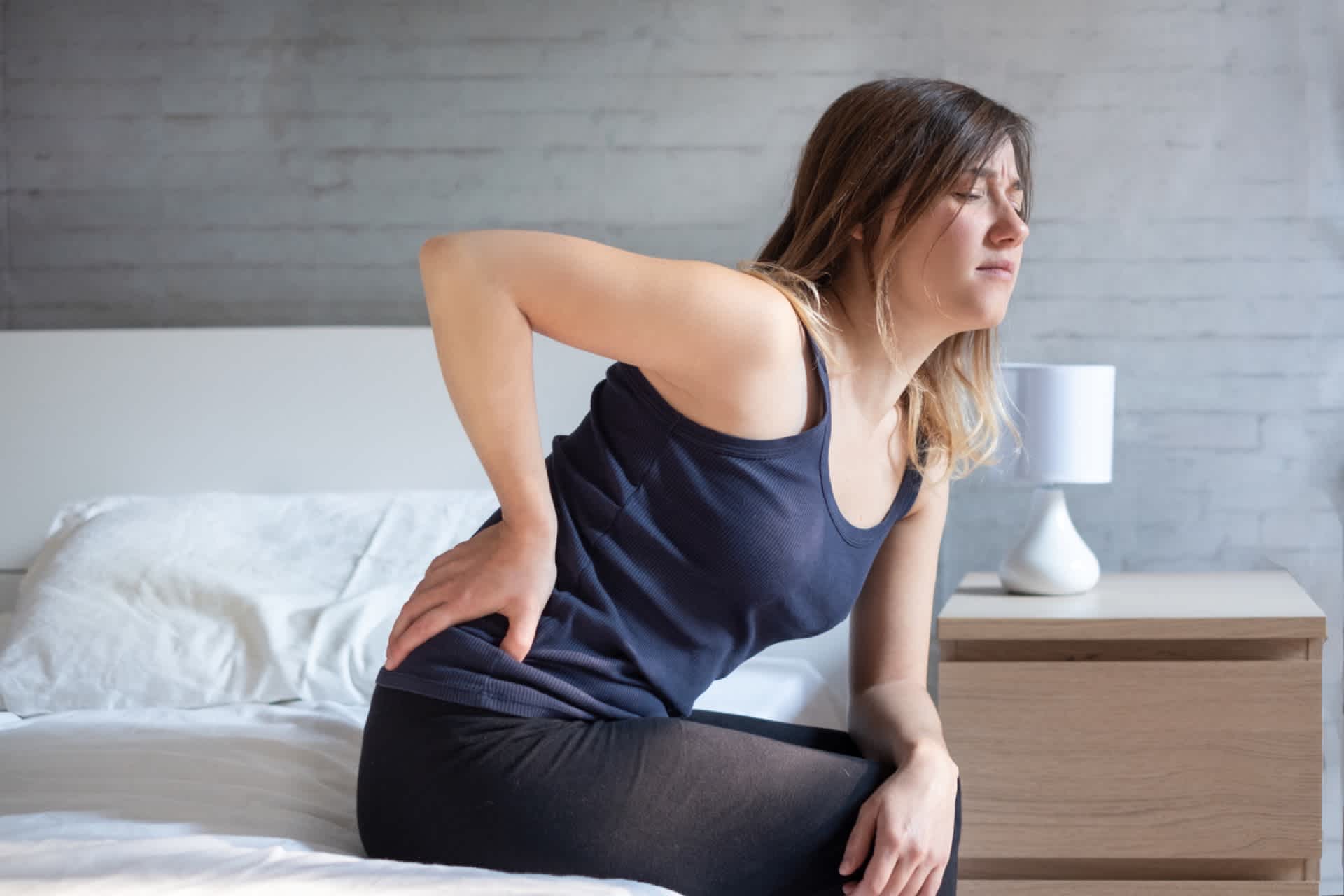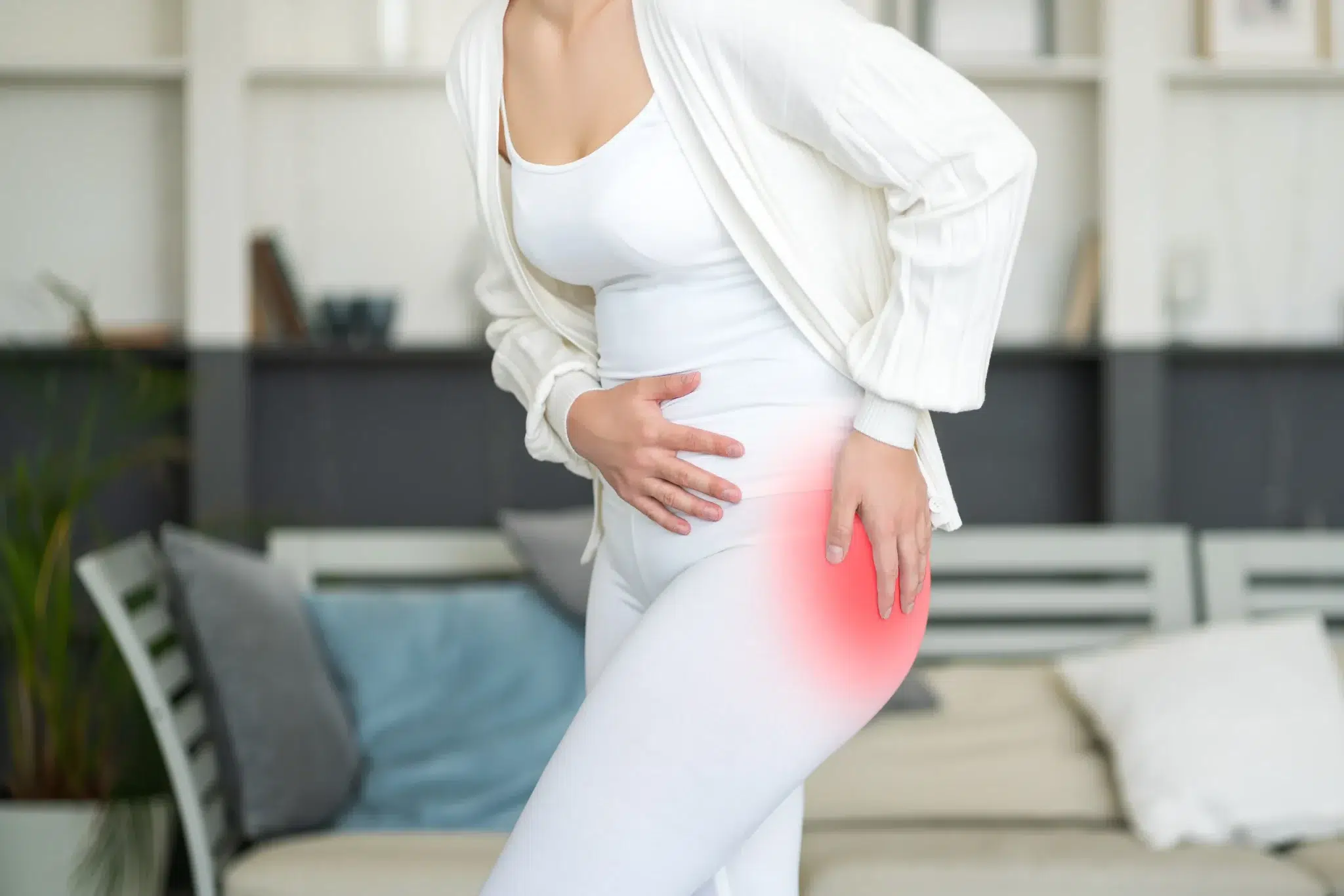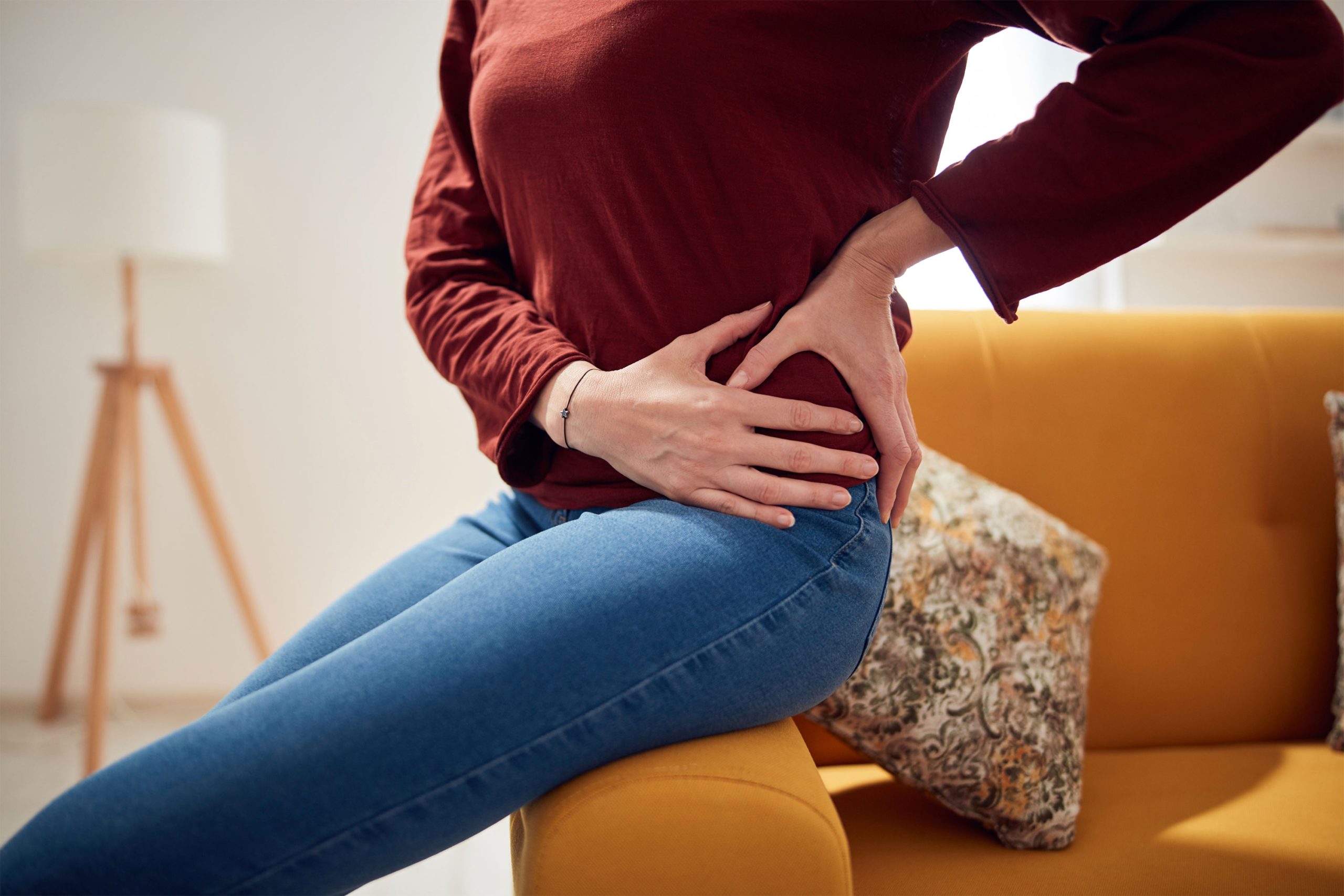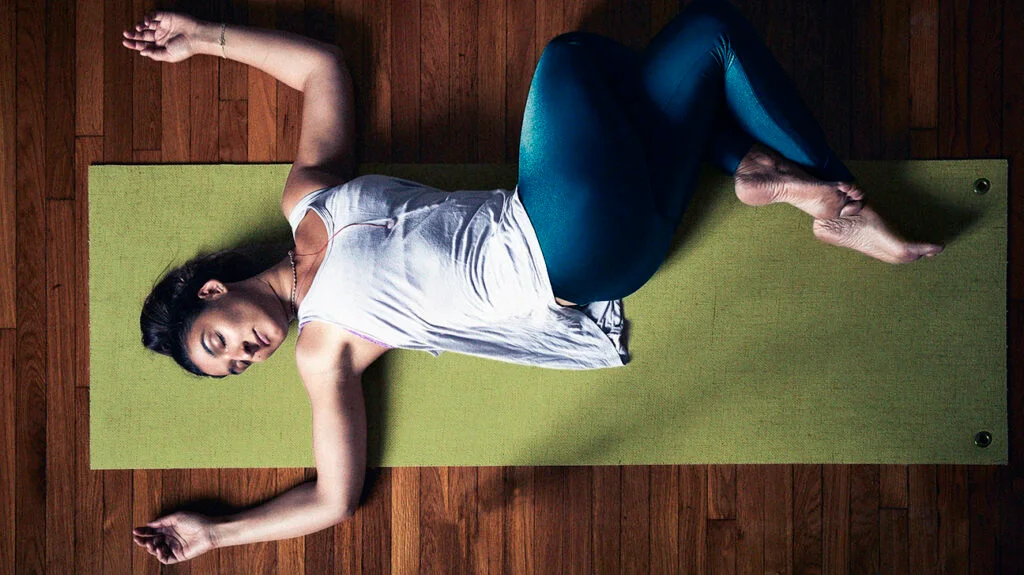Many women wonder if their period can cause hip pain, a question that’s both common and understandable. During menstruation, your body goes through lots of changes, and sometimes, these changes can lead to discomfort in unexpected areas, including the hips. Today we will explore whether there’s a link between menstrual cycles and hip pain, what causes it, and how to find relief. It’s all about knowing your body better and finding ways to ease any discomfort that comes with periods.

Contents
Can Periods Cause Hip Pain?
Periods can indeed cause hip pain, although it’s not the most common symptom. Here’s a breakdown of the reasons why:
-
Dysmenorrhea: This refers to painful menstrual cramps. While cramps are usually felt in the lower abdomen, they can sometimes radiate to the lower back, thighs, and even the hips. This radiating pain can be mistaken for hip pain.
-
Endometriosis: This condition involves tissue similar to the uterine lining growing outside the uterus, often in the pelvic region. When endometrial lesions grow around the nerves in the pelvis, they can cause pain that radiates to the hips, buttocks, and legs. This pain may worsen during your period due to hormonal fluctuations.
-
Hormonal Fluctuations: Menstruation involves significant hormonal changes, particularly a drop in estrogen levels. This hormonal shift can affect your joints and ligaments, potentially leading to increased joint laxity (looseness) and making you more susceptible to pain, including in the hips.

Here are some additional details to consider:
- Pain Characteristics: Period-related hip pain might feel like a dull ache, sharp throbbing, or a pulling sensation. It can be on one or both sides of the hip and may worsen with certain movements.
- Timing: If the hip pain is related to your period, it often starts just before or during your period and eases up as your period subsides.
- Other Symptoms: Depending on the cause, you might experience other menstrual symptoms like cramps, bloating, fatigue, or backaches alongside the hip pain.
How to Manage Hip Pain During Periods?
Managing hip pain during periods can make a significant difference in how you feel and go about your daily activities. Here are some effective strategies to help alleviate this discomfort:

1. Heat Therapy
Applying a heating pad or a warm towel to your hip area can help relax the muscles and reduce pain. Heat improves blood circulation, which can ease the tension and discomfort you’re experiencing.
2. Pain Relief Medication
Over-the-counter pain relievers such as ibuprofen, naproxen, or acetaminophen can be effective in managing pain. These medications can help reduce inflammation and alleviate hip pain. Always follow the recommended dosage and consult with a healthcare provider if you’re unsure.
3. Gentle Exercise
Light activities like walking, yoga, or stretching can help relieve hip pain by increasing blood flow and loosening up tight muscles. Focus on gentle movements that do not exacerbate the pain.

4. Dietary Adjustments
Some foods can exacerbate inflammation and pain. Try to incorporate anti-inflammatory foods into your diet, such as omega-3 fatty acids found in fish, nuts, and seeds. Additionally, staying hydrated and reducing caffeine and salt intake can help reduce bloating, which might indirectly relieve some discomfort.
5. Massage
Gentle massage around the hip area can help ease muscle tension and pain. You can use massage oils or balm to enhance the experience. If the pain persists, consider seeing a professional massage therapist who is familiar with menstrual-related discomfort.
6. Proper Rest
Ensuring you get enough rest and sleep is crucial during your period. Sleep helps your body to recover and can alleviate stress and tension, which may reduce the severity of hip pain.
7. Warm Baths
Taking a warm bath can help relax your muscles, including those around the hips. Adding Epsom salts to your bath can further help in reducing muscle soreness and tension.
8. Stay Hydrated
Drinking plenty of water can help reduce bloating, which in turn can lessen the pressure and pain around the hips. Aim for at least 8-10 glasses of water a day.
9. Stress Management
Stress can exacerbate period symptoms, including hip pain. Practices such as meditation, deep breathing exercises, or any relaxing hobby can help manage stress levels.
10. Consult a Healthcare Provider
If your hip pain is severe, persistent, or affects your daily activities, it’s important to consult with a healthcare provider. They can offer personalized advice, prescribe stronger pain relief if necessary, and rule out any other underlying conditions.
Frequently Asked Questions
Why do my hips hurt when on my period?
During menstruation, endometrial lesions can build around nerves and cause pain. Hip pain is common because of affected nerves, sometimes radiating to the buttock.
Can the menstrual cycle cause joint pain?
Yes, menstrual cycles can lead to joint pain due to changing hormones. Symptoms like cramps and bloating are common, along with lesser-known issues such as joint pain.
Can hip pain be hormonal?
Hip pain or dysfunction is common in women during childbearing or menopausal years. Hormonal changes in these stages may contribute to altered biomechanics and support loss.
When should you not ignore hip pain?
Seek immediate medical help if you notice a deformed joint, leg shortening, inability to move or bear weight, or experience intense pain.
What can be mistaken for hip pain?
Back pain is commonly mistaken for hip pain because of their close proximity. Both types of pain can vary from a dull ache to sharp discomfort affecting mobility.
I am a medical student with experience and interest in Women’s health and well-being.